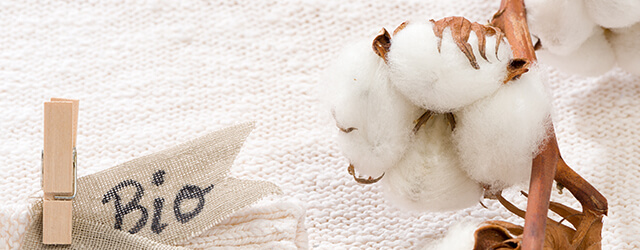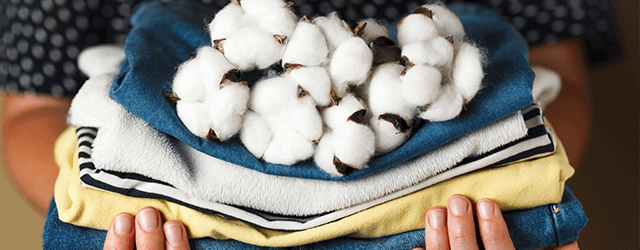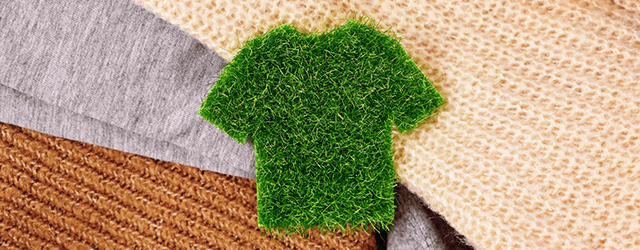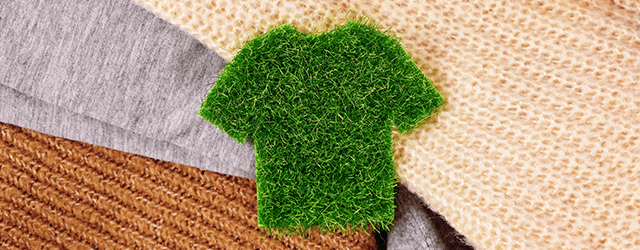Blog
Organic cotton
Why choose organic cotton?
29 JANUARY 2021
When we want to consume more responsibly, it's not unusual for us to be advised to opt for organic materials, particularly organic cotton. Over and above the ethical values of responsible fashion, consuming ecological or fair trade clothing helps to protect the planet of today and tomorrow. These lifestyle choices have a direct impact on the environment, as well as on the conditions in which clothes are produced. That's why it's important to understand what's at stake and the consequences of your purchases and consumption habits. Organic cotton is one of the most recommended materials for changing our lifestyle choices, but why choose it?

Organic cotton: a greener choice?
Traditional cotton growing is one of the most polluting on earth. It uses a quarter of the pesticides sold worldwide, even though it covers less than a tenth of the planet's surface area. What's more, the purchase of these fertilisers puts farmers and small cotton growers into debt. However, cotton accounts for almost half the world's textile production.
Fortunately, it is possible to produce cotton in a different way and to get directly involved with the farming villages so that they can harvest it in complete safety. To consume cotton in a way that respects people and the planet, opt for organic rather than conventional farming. That way, you can limit the use of large quantities of fertiliser and all the chemical substances that are harmful to your health and that of the planet.
What is organic cotton?
Organic cotton is cotton grown using natural compost to replace chemical fertilisers. GMO-free, it is grown using less water than conventional cotton. While a conventional cotton T-shirt uses 2,700 litres of water, an organic cotton T-shirt requires just 100 litres. The dyes are free from heavy metals and other carcinogenic substances.
What are the advantages of organic cotton?
Fairer, more natural and healthier, organic cotton is better for the environment, for the working conditions of farmers and for your health. It's also better quality.
Better environmental protection
Growing organic cotton uses no toxic products and does not deplete the soil. It also uses less energy and water. The result is a garment that causes very little pollution, making it healthier for the planet in the long term.
Better working conditions for farmers
The pesticides traditionally used on cotton have a negative impact on the health of those who handle them, i.e. the farmers and inhabitants of the regions where the cotton is grown. Using organic cotton also means better working conditions for farmers, protecting their health first and foremost.
Better textile quality
Organic cotton has particularly strong fibres. Clothes are robust and durable, and are less easily damaged. In fact, because of the aggressive treatments it undergoes, traditional cotton is often of poorer quality.
Using organic cotton is an excellent compromise for a fairer, more ecological and eco-responsible wardrobe. Thanks to the various labels that exist, you can easily recognise organic cotton and renew your wardrobe with clothes that match your values and needs: all with better quality. Better for your health and the environment, your textiles are ethically designed for you.
Mais aussi...
Nos autres articles

Using less clothing
29 December 2022
Eco-responsibleHave you been wondering about your clothing consumption for some time now, and want to act...
Lire cet article
How do I choose eco-responsible clothing?
05 July 2022
Eco-responsibleOur tips for choosing eco-responsible...
Lire cet article
Eco-responsible fashion: a sustainable choice for Elora
17 May 2022
Eco-responsibleEco-responsibility is a key concern for many companies. Elora is part of this philosophy...
Lire cet article






 Lire cet article
Lire cet article